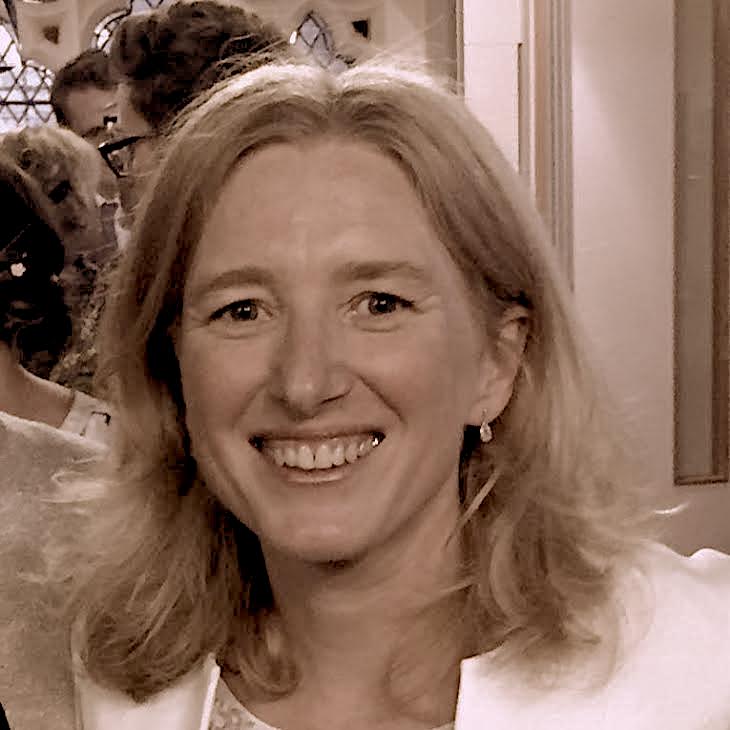
by Mandy Marshall
June 15, 2020
On the night he attacked me, I was strangled to unconsciousness. My friend came round and saw my burst blood vessels in my face, and I was still in shock. She took me to the vicarage, and I was asked, ‘So did you have an argument then?’ . . . The following Sunday the bruising around my eyes had come up. No one at church asked me if I was OK. —Susie (name changed, and story shared with permission)
Over the years I have heard many stories like Susie’s, where a church’s response to abuse was wholly inadequate, where some misunderstood the serious nature of domestic abuse, and where they were paralyzed to act. When Restored, a Christian charity working to end domestic abuse, raised awareness with churches on the prevalence of domestic abuse in the UK, some responded with disbelief. People were quick to respond by saying, “surely not in our church.” Or if they were able to acknowledge the existence of abuse in church communities, many would say it “wasn’t being done by Christian men.” Unfortunately, they are wrong. Domestic abuse is prevalent among Christians and often perpetuated by the way churches respond to women who report, which is reinforced by common unbiblical teachings on divorce. Churches must do better if we want to address this crisis of domestic violence.
Research on Prevalence of Abuse in Churches
These myths of abuse were challenged head-on with groundbreaking research, “In Churches Too: Church Responses to Domestic Abuse—A Case Study of Cumbria”1 by Kristin Aune (University of Coventry) and Rebecca Barnes (University of Leicester), looking at church responses to domestic abuse across Cumbria, a region in the northwest of England famed for the Lake District National Park. This serene and seemingly idyllic place saw one in four churchgoers experiencing abuse in their current relationship. This rose to over 42 percent when previous relationships were taken into account. Moreover, the research revealed that over 90 percent of the abuse was committed by men, and 56 percent of these were churchgoers. This evidence shows that domestic abuse happens in churches too and is often perpetuated by Christian men.
It’s easy for Christians who don’t understand the prevalence of abuse to wonder how a seemingly lovely man who sits on the leadership of the church or passes out bulletins or helps with the youth group could be such a monster in private. Because Christians are ready to give people the benefit of the doubt, they fail to see how a reputable churchgoer can have a Jekyll-and-Hyde personality. But the denial or minimization a survivor faces in a church after a disclosure of abuse can close them down from speaking up and getting the help and support, they need.
Pleading in Prayer
Survivors will tell me about their abusive husbands and how they have tried everything to appease him, please him, and have prayed for things to change. Sometimes they ask me to pray with them that he will change back into the man they once knew and married. They commonly say things like, “If he just went back to the man I married . . . ,” or “He was so lovely when we first got married,” or “He was Mr. Charming, and all my girlfriends were jealous that I got to marry him.”
Their pain is heartbreaking.
When I ask how he is working on himself to change, their faces are often downcast and they say things like, “He thinks I need to change,” “He thinks I’m crazy,” or “He doesn’t see anything wrong with what he is doing.”
Victims and survivors of abuse often minimize the abuse when speaking out at first. Some do not think they are being abused because their husband has not physically injured them yet. Prayer becomes their last hope, and sometimes it is a killer hope. Hope, along with a load of church culture that pressures women to stay no matter what, leaves a woman feeling totally trapped with nowhere to go and no hope but to pray for change when the abuse escalates. Often, Christian women who are being abused by their husbands/partners feel they are unable to leave him or divorce him because it is not biblical. Common church teachings are what keep women from escaping their abusers instead of empowering them to find help.
God Hates Divorce
“God hates divorce” is one of the most-used justifications for encouraging a woman with an abusive husband to stay in the relationship. When Christians use this justification, they become complicit in the abuse. Yes, God absolutely hates divorce because of the immense hurt, pain, and destruction that it brings. It tears hearts into pieces and can take years to repair. No loving God would want to see any of his children go through that. Of course, God hates divorce—who does not?
This common quip actually represents a misinterpretation of Malachi 2:16, which says, “‘The man who hates and divorces his wife,’ says the LORD, the God of Israel, ‘does violence to the one he should protect.’” Clearly, the man who does violence against his wife has already, in a spiritual sense, divorced her. A woman who files for divorce from her abuser is then making legal the reality he has forced upon her spiritually. Even though God hates divorce, he does allow for it (Matt. 19:8), and it is therefore not a reason to send a woman back to her abusive husband. In fact, it could be very dangerous to do so.
Till Death Us Do Part
“Marriage is for life” is another frequently cited justification for encouraging women to stay with abusive partners. This idea refers to our belief that marriage is a covenant agreement made before God to respect, love, and cherish one another. In cases of abuse, it is the abuser who has broken the covenant, not the survivor. We need to place the responsibility where it lies: with the person who is abusing. The marriage covenant was not meant to be upheld under any circumstance. Abuse, coercive control, infidelity, and abandonment are all events that break this covenant. Forcing a woman to accept these circumstances is not loving or just. It is more akin to abandoning our Christian duty to care for the hurting, and instead choosing to walk on the other side of the road as the priest and Levite did in the story of the Good Samaritan (Luke 10:25–37).
How have we arrived at a place where a woman is encouraged to stay with a husband who is choosing to abuse her because she made a vow of “till death us do part”? It can be very dangerous and lead to the loss of life. Whose death are we talking about? In the UK, on average, two women a week are murdered by their partner or ex-partner, according to a study by the Office for National Statistics. If we advise women to remain and reconcile, we could be placing a death sentence on the woman or encouraging her to return to a marriage where her safety, sanity, and dignity are not being upheld. No Christian or church leader wants to be a part of a domestic homicide review trying to justify why they advised a woman to return to her abusive husband or partner, rather than refer her to the professional services available.
Do the church and Christians really put the institution of marriage above life itself? Do we think Jesus died to uphold the institution of marriage? Clearly, we should not.
Jesus did not die for marriage or to elevate the institution of marriage above everything else. No, Jesus died to bring us back to God and show a way of love and peace. The New Testament reprioritizes marriage so that following Jesus is placed above it and all other earthly things. Jesus taught that at the resurrection we will not be married (Matt. 22:30), and Paul teaches a preference for singleness in his letter to the Corinthians (1 Cor. 7:8, 32–35). Thus, we should not be afraid to hold men who abuse accountable, and we should not hinder women seeking to divorce their abusive husbands.
Holding Abusers Accountable
As a church, we should be angry at the men who choose to abuse. We should not punish women who are being abused and then prevented from speaking up about the horror of their situation. We silence women when we tell them that they cannot speak out because it will give Christianity, the church, or the abuser’s ministry a bad name. The blame must be placed on the perpetrator. It is he who is at fault, who has sinned. If anyone gives the church or Christianity a bad name, it is the perpetrator of abuse.
We also need to remember that God has survived many a scandal over thousands of years, and the church will survive without the ministry of a man who is choosing to abuse his wife. It is not going to ruin God’s name by speaking out but rather the reverse. By not speaking out we bring the reputation of the church under question and derision. We need to act justly, love mercy, and walk humbly with our God (Mic. 6:8). It is our responsibility to call out abuse and bring about justice.
Call to Action
We need to look at ourselves and examine what assumptions we have imbibed via our patriarchal church culture, or teachings that misinterpreted Scripture, regarding marriage and domestic abuse. We need to recognize the damage that these assumptions have done to us mentally, spiritually, and physically and mourn the pain and hurt that they have caused. It may take some time to grieve through this because our assumptions could be deeply ingrained. Remember though that in Jesus we have complete freedom. Jesus came to bring healing to the brokenhearted and to break the chains of injustice.
If you are able, discuss these assumptions with a safeguarding officer (child protection person) at your church, or raise it with your church leader or pastor. Open up a debate about the messages that these assumptions can bring to those who are being abused. Restored has provided a resource for churches, which can be downloaded in different languages and adapted for different countries:
www.restoredrelationships.org/churchpack. The US version can be found here: https://www.restoredrelationships.org/resources/info/147/.
About Mandy Marshall:
Mandy Marshall, a leading international campaigner against gender-based violence, is Director for Gender Justice at The Anglican Communion. Mandy, who is currently Co-Director of Restored, a charity she co-founded to end violence against women, took up her new role in April 2020. She previously worked for Tearfund, a Christian development agency established by the UK Evangelical Alliance in 1968, as its Programme Development Advisor for Gender.
Restored was co-founded in 2010 by Mandy Marshall and Peter Grant (formerly of Tearfund), and they work in the UK and internationally. The issue is massive so, where possible, they work with partners rather than running projects themselves. That’s why we founded, and lead, the world’s largest Christian alliance to end domestic abuse (Tearfund, Livability, CAFOD and Mother’s Union are among their members.) https://www.restoredrelationships.org/about-us/
